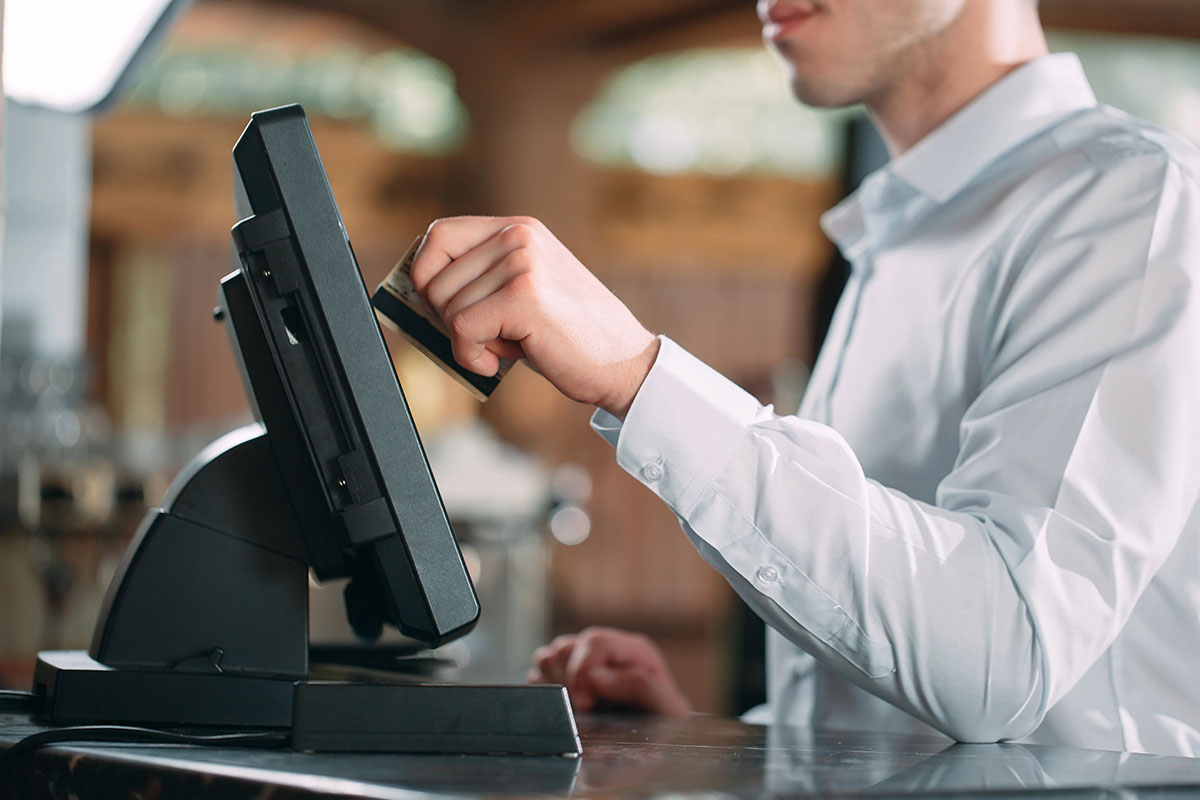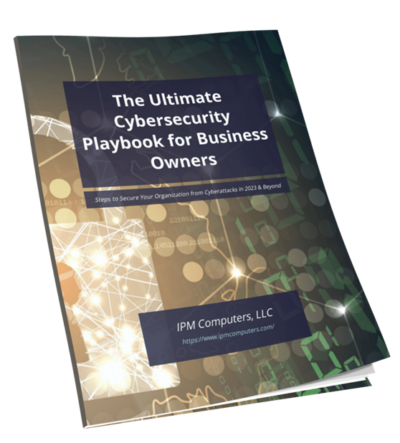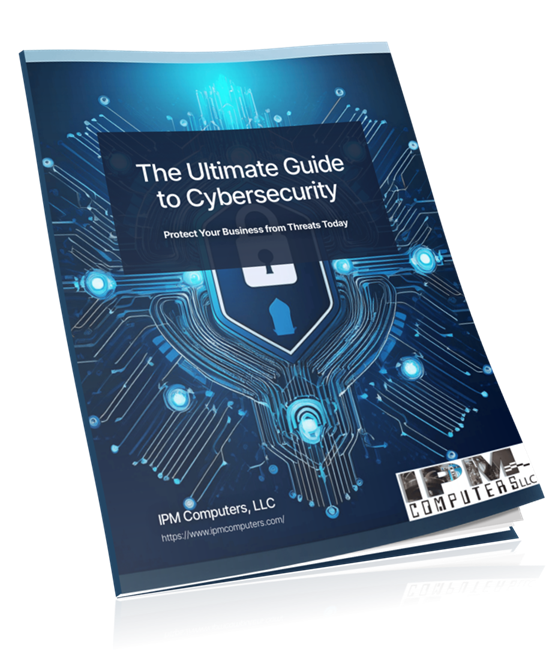IT and POS systems are requisite for restaurants and shops, and integrating Myrtle Beach IT services ensures they deliver optimal results. These systems play a role in:
- Streamlining operations
- Managing customer data
- Maintaining competitiveness
Reliable IT support directly influences the efficiency of operations and enhances the overall customer experience. When systems function seamlessly, you can focus on delivering exceptional service, ultimately leading to increased customer satisfaction.
Below, we’ll cover:
- The necessity of reliable IT support
- Strategies for implementing robust network security
- The benefits of effective POS systems
- Insights into inventory management and data protection
Why Reliable IT Support is Urgent
Having reliable IT support is integral for running a successful restaurant or shop. Here’s how it can make a difference:
1. Smooth Operations
When you have dependable IT support, you can be sure that your systems are working properly. This means fewer interruptions that could affect your service and leave customers unhappy.
2. Quick Fixes and Remote Assistance
It’s important to fix problems quickly so that you don’t lose any business time. With remote support, IT experts can identify and fix issues without having to come in person. This means faster response times and quicker solutions.
3. Regular Software Maintenance and Updates
Regular maintenance keeps your systems reliable, while updates improve functionality and fix any security weaknesses. This protects your customers’ sensitive information and keeps you compliant with industry regulations.
Implementing Network Security Measures
With increasing reliance on technology, protecting sensitive customer data becomes non-negotiable.
Firewalls
These act as a barrier between your internal network and potential threats from the outside world.
Encryption
This protects data transmitted across networks, setting it up so that even if intercepted, sensitive information remains unreadable.
Antivirus software plays a critical role in safeguarding against malware and other cyber threats. Regular updates and scans help maintain a strong defense against cybersecurity risks.
Strategies for securing both internal networks and guest Wi-Fi are equally important:
1. Segmented Networks
Keeping guest Wi-Fi separate from internal systems prevents unauthorized access to sensitive data.
2. Guest Access Controls
Limit the duration and bandwidth available to guests, minimizing potential vulnerabilities.
Implementing these measures secures restaurant data and builds customer trust. When customers feel confident that their information is safe, they’re more likely to engage with your business.
Streamlining Operations with Effective POS Systems
A well-implemented restaurant EPOS system can drastically transform daily operations by automating processes and providing valuable insights.
Features of Modern POS Systems
- Fraud Prevention: Advanced security measures within POS systems help mitigate risks associated with financial transactions, safeguarding your revenue.
- Labor Control: Efficient labor management features allow you to monitor employee hours, streamline scheduling, and control labor costs effectively.
- Allergen Tracking: Modern systems often come equipped with allergen tracking capabilities, maintaining compliance with health regulations and enhancing customer safety.
Through these features, a reliable IT and POS system can significantly reduce wait times, improve order accuracy, and foster a more enjoyable dining experience for customers. Investing in effective POS solutions simplifies operations and positions your business for long-term success in a competitive market.
Integrating Online Ordering & Delivery Solutions for Seamless Service
Integrating online ordering systems with POS platforms transforms how restaurants manage orders and inventory.
Benefits:
1. Enhanced Inventory Management
- Real-time updates on stock levels prevent overselling and help maintain optimal inventory.
- Automatic adjustments in inventory based on online orders simplify tracking and reduce human error.
2. Improved Customer Engagement
- Seamless delivery integration offers customers convenience and flexibility.
- Streamlined checkout processes minimize abandoned carts, boosting sales.
3. Increased Satisfaction
- Quick order fulfillment enhances the customer experience, fostering loyalty.
- Tailored promotions through integrated systems can target specific customer preferences, driving repeat business.
Implementing these solutions supports operational efficiency and strengthens customer relationships. The result is a more agile service model that adapts to changing market trends while maximizing profitability.
Leveraging Technology for Efficient Inventory Management
Effective inventory management in the restaurant industry is fundamental for operational success. Implementing technology solutions can significantly enhance efficiency through:
- Real-time stock level tracking: Staying updated on ingredient availability prevents overstocking and stockouts. This immediate visibility allows for timely ordering, ensuring that kitchens are always well-equipped to meet customer demands.
- Ingredient usage monitoring: Tracking how ingredients are used helps identify patterns and adjust purchasing strategies accordingly. Understanding which items sell best can lead to optimized menu planning.
Incorporating predictive analytics takes inventory management a step further. By analyzing historical data, restaurants can forecast future inventory needs with greater accuracy. This approach minimizes waste and reduces costs associated with over-purchasing or spoilage.
For instance, a restaurant utilizing an integrated POS system can automatically update inventory levels as sales occur. Such systems often feature alerts for low stock, enabling proactive management that aligns with customer preferences and seasonal trends.
Technology streamlines these processes, allowing restaurant operators to focus on delivering exceptional dining experiences while maintaining efficient inventory practices.
Ensuring Data Protection with Cloud Backup Solutions
Restaurants and shops face significant risks regarding data loss or corruption. Cloud backup solutions play a critical role in safeguarding sensitive information, empowering business continuity and protecting customer data. Key benefits include:
- Automatic Backups: Regular automated backups minimize the risk of lost data due to hardware failures or human error.
- Accessibility: Stored data can be accessed from anywhere, providing flexibility for restaurant owners and managers.
- Scalability: As businesses grow, cloud solutions can easily be adjusted to accommodate increased data storage needs.
Implementing effective data recovery strategies is vital. Consider these best practices:
- Regular Testing: Conduct routine tests of backup systems so data can be restored promptly.
- Multi-Location Backups: Utilize multiple cloud locations for redundancy; this provides further protection against localized disasters.
- User Training: Educate staff on proper procedures for data handling and backup processes, reducing the likelihood of user errors.
The integration of reliable IT support with cloud backup solutions enhances security and operational efficiency. Restaurants that prioritize these measures position themselves to handle unforeseen challenges effectively, maintaining their competitive edge in a technology-driven landscape.
Enhancing Customer Engagement through Technology Integration
Effective customer engagement strategies are critical for driving sales and fostering loyalty. Integrated CRM systems play a significant role in crafting targeted marketing campaigns, enabling businesses to personalize their outreach based on customer preferences and behaviors. These systems collect valuable data, allowing you to segment your audience and tailor promotions that resonate with specific groups.
Loyalty programs integration can further amplify engagement. For instance, platforms like Paytronix facilitate the creation of customized loyalty programs that reward customers for repeat visits. This integration helps in tracking customer interactions and encourages order frequency by offering incentives, such as discounts or exclusive offers.
Advantages of leveraging technology for customer engagement include:
- Increased Retention Rates: Engaging customers through personalized communication fosters loyalty.
- Enhanced Customer Insights: Data from CRM systems provides insights into purchasing patterns, guiding future marketing efforts.
- Streamlined Interaction: Automated messaging and alerts keep customers informed about promotions and rewards.
Analyzing Business Performance with Comprehensive Reporting Tools
Using comprehensive reporting tools can greatly improve a restaurant’s ability to understand how well it’s doing. These tools provide important information about:
- Sales Trends: Identifying peak sales times and popular menu items helps you tailor marketing efforts and manage inventory.
- Customer Preferences: Analyzing purchasing patterns enables personalized service, fostering customer loyalty.
Another important area where analytics tools for restaurants excel is operational efficiency. By looking at metrics like table turnover rates and staff productivity, you can make smart choices that improve operations.
Benefits of leveraging these analytics include:
- Informed Decision-Making: Access to real-time data allows for quick adjustments in strategy, whether it’s modifying the menu or staffing levels.
- Cost Management: Knowing which items yield high profit margins versus those that do not can guide pricing strategies and promotional efforts.
Embracing IT & POS Systems for Future Success
The restaurant industry is rapidly changing due to advancements in technology. To stay competitive, businesses must keep up with future trends in restaurant technology, including ensuring IT compliance in Myrtle Beach SC.
Key considerations include:
- Adoption of AI: Utilizing artificial intelligence for personalized customer experiences.
- Integration of mobile solutions: Offering contactless payments and mobile ordering to enhance convenience.
- Data-driven decisions: Leveraging analytics for real-time insights into operations and customer behavior.
Investing in strong IT infrastructure can streamline processes, improve customer engagement, and boost operational efficiency. Restaurants and shops that prioritize reliable Myrtle Beach tech support and POS systems position themselves for long-term success, for meeting changing customer expectations and improving overall service delivery.
Frequently Asked Questions About IT Hardware
Why are reliable IT and POS systems important for restaurants and shops?
Reliable IT and POS systems are critical for restaurants and shops as they enhance operational efficiency, improve customer experience, and streamline various processes. These systems help manage transactions, inventory, and customer data effectively, resulting in smooth operations and high satisfaction levels.
What are the benefits of having IT support in a restaurant?
IT support provides numerous benefits for restaurants, including enhanced business efficiency through troubleshooting, remote support to minimize downtime, and regular software maintenance. This support is vital for addressing technical issues swiftly and maintaining seamless operations.
How can restaurants secure their data against cyber threats?
Restaurants can secure their data by implementing robust network security measures such as firewalls, encryption, and antivirus software. Establishing secure internal networks and protecting guest Wi-Fi are integral strategies to safeguard sensitive customer information from cyber threats.
What features should modern POS systems include for optimal performance?
Modern POS systems should include key features like fraud prevention mechanisms, labor control tools, allergen tracking capabilities, and efficient inventory management. These features help streamline operations while enhancing customer satisfaction by facilitating accurate transactions.
How does integrating online ordering with POS systems benefit restaurants?
Integrating online ordering platforms with POS systems allows for better inventory management and real-time updates on stock levels. This seamless integration improves customer engagement by providing a smoother ordering experience and enhances overall service delivery.
What role does cloud backup play in data protection for restaurants?
Cloud backup solutions are vital for safeguarding critical data against loss or corruption in restaurants. They provide a reliable means of data recovery, so important information is securely stored offsite, allowing businesses to quickly restore operations in case of data loss incidents.






